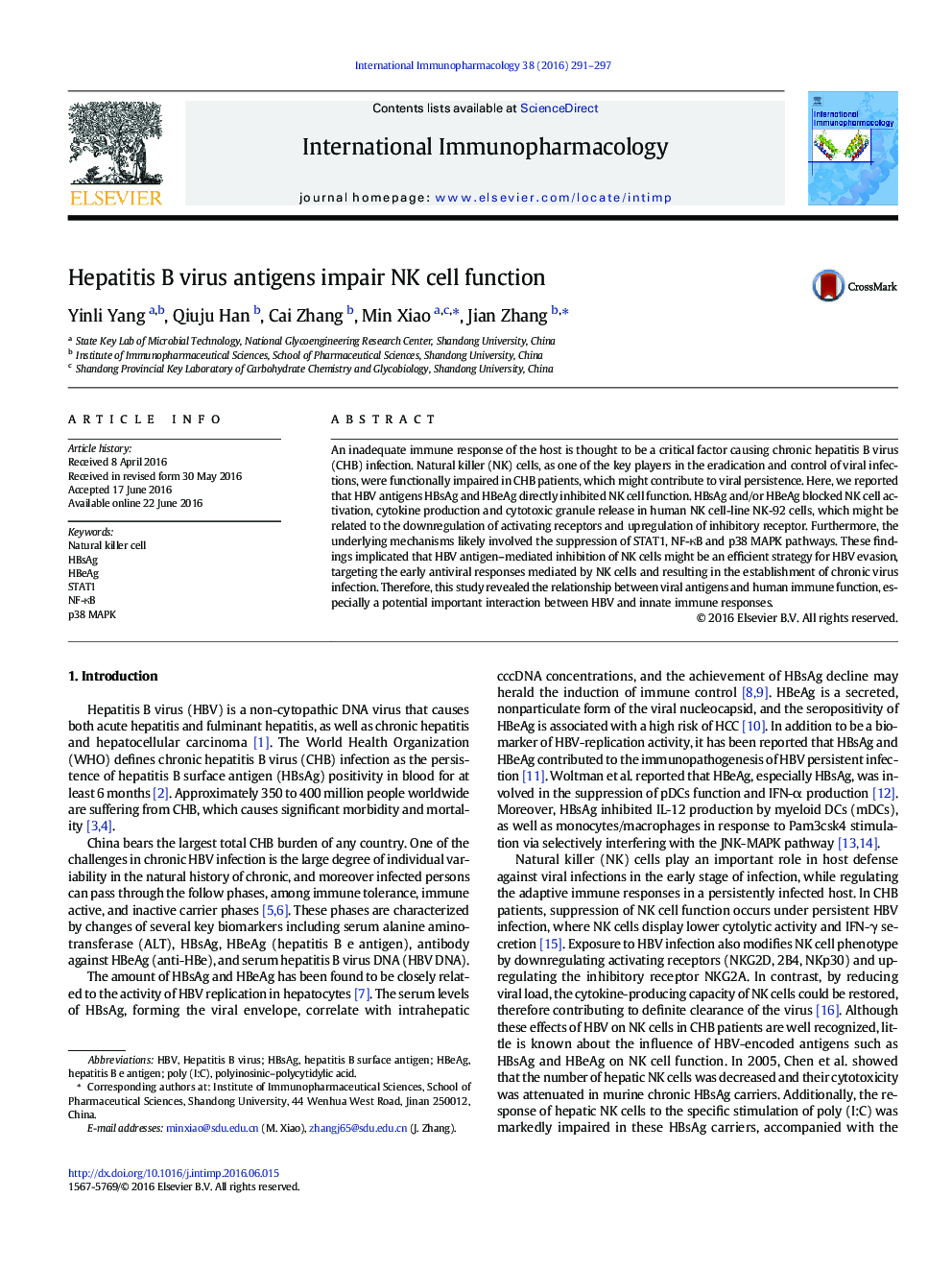| Article ID | Journal | Published Year | Pages | File Type |
|---|---|---|---|---|
| 5831785 | International Immunopharmacology | 2016 | 7 Pages |
â¢HBV antigens such as HBsAg and HBeAg could directly suppress NK cell function and response to stimuli.â¢HBV antigens influenced NK cell function via disturbing multi-signal pathways associated with NK cell activation.â¢Revealing a potential important interaction between HBV and innate immune responses.
An inadequate immune response of the host is thought to be a critical factor causing chronic hepatitis B virus (CHB) infection. Natural killer (NK) cells, as one of the key players in the eradication and control of viral infections, were functionally impaired in CHB patients, which might contribute to viral persistence. Here, we reported that HBV antigens HBsAg and HBeAg directly inhibited NK cell function. HBsAg and/or HBeAg blocked NK cell activation, cytokine production and cytotoxic granule release in human NK cell-line NK-92 cells, which might be related to the downregulation of activating receptors and upregulation of inhibitory receptor. Furthermore, the underlying mechanisms likely involved the suppression of STAT1, NF-κB and p38 MAPK pathways. These findings implicated that HBV antigen-mediated inhibition of NK cells might be an efficient strategy for HBV evasion, targeting the early antiviral responses mediated by NK cells and resulting in the establishment of chronic virus infection. Therefore, this study revealed the relationship between viral antigens and human immune function, especially a potential important interaction between HBV and innate immune responses.
